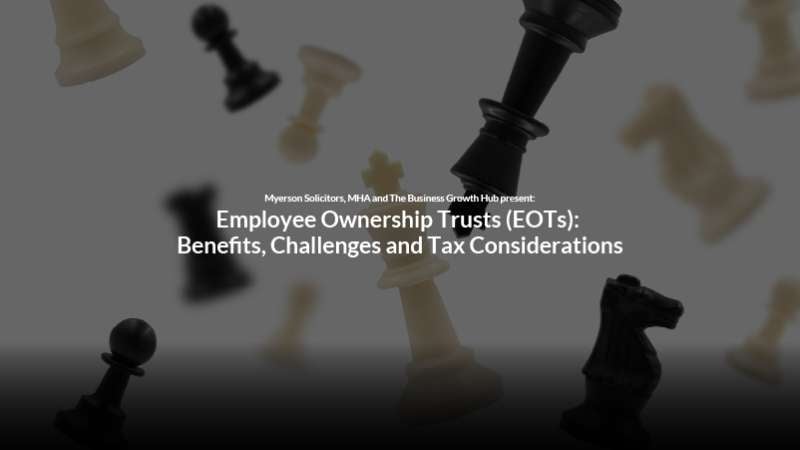The principal advantage for the selling shareholders who sell their shares to an EOT is the beneficial tax treatment offered.
The Finance Act 2014 offers selling shareholders 100% relief from CGT on the disposal of their shares, provided strict requirements are adhered to.
In the Autumn Budget, the Chancellor announced that the rates of CGT will increase from 10% to 18% (at the basic rate) and from 20% to 24% (at the higher rate) for the disposal of assets (other than residential homes) made on or after 30 October 2024.
In addition, the Chancellor has confirmed that the rate of CGT that applies to BADR will increase from 10% to 14% for disposals made on or after 6 April 2025 and from 14% to 18% for disposals made on or after 6 April 2026.
In recent years, we have seen employee ownership become increasingly prevalent, with EOTs gaining traction as an ownership structure due to the significant benefits it offers to both the present owners (the selling shareholders) and the business's employees.
This trend is likely to continue as the number of EOTs continues to grow.
The changes made to CGT in the Autumn Budget make EOT ownership an even more attractive succession model for current business owners, provided that their business is suitable for employee ownership.







